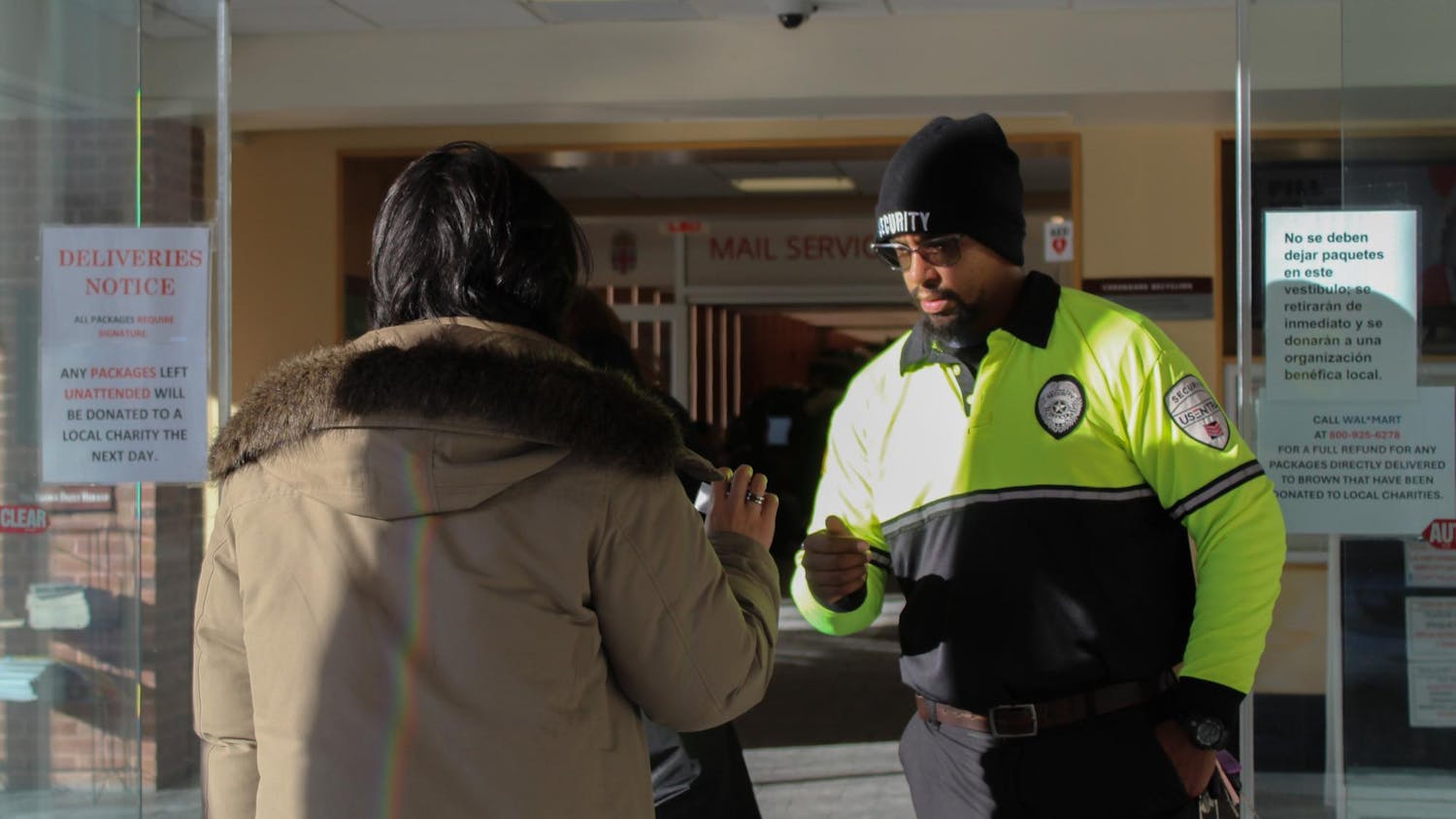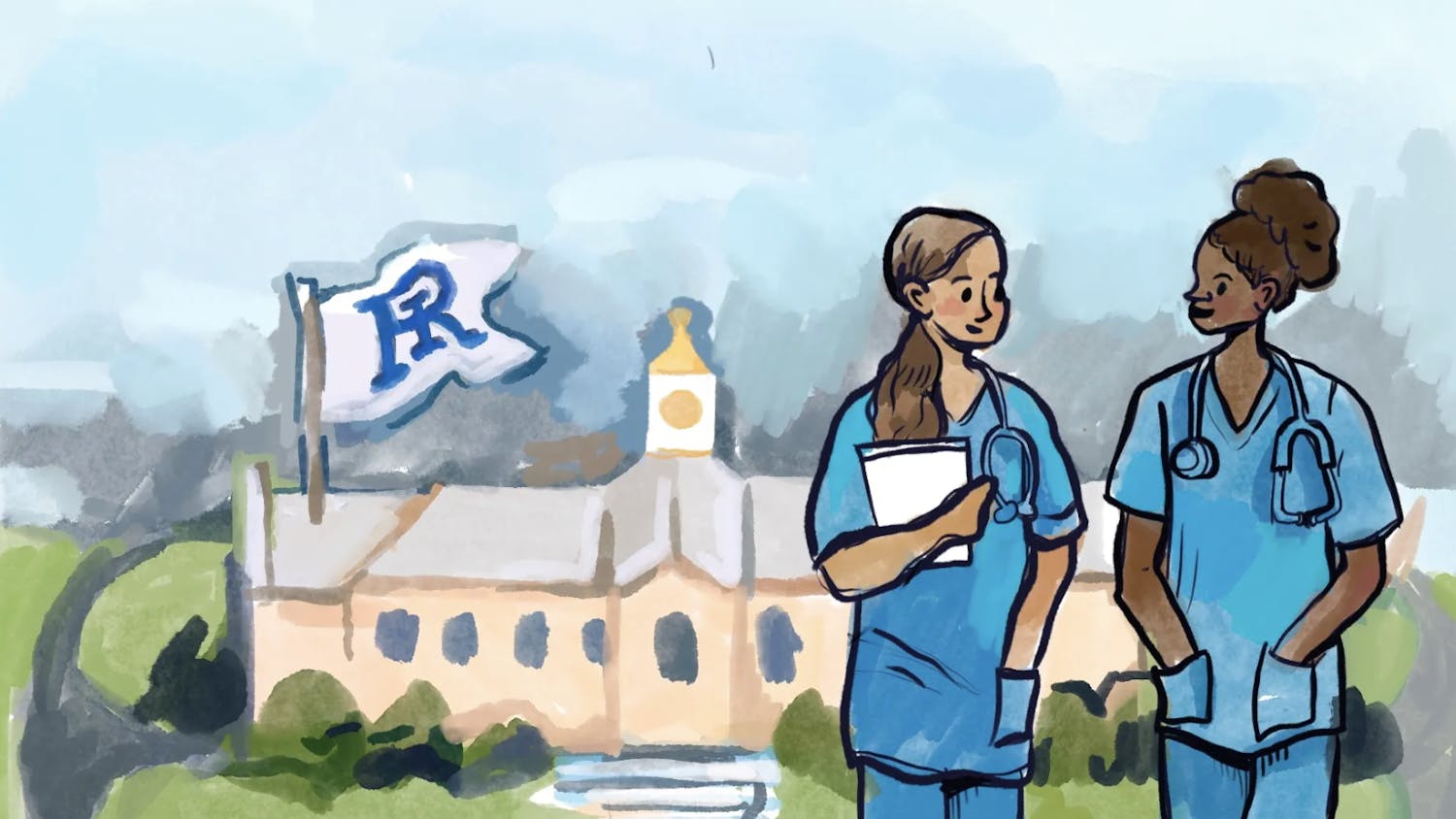After the Providence Public School District saw levels of chronic absenteeism more than three times the national rate in the 2021-22 academic year, the district has posted a slight decline so far this year, according to Nicholas Domings, PPSD’s chief communications officer.
Last academic year, 17% of public school students nationally were chronically absent — defined as missing 10% or more of the school year — according to the National Center for Education Statistics. In Providence Public Schools, 59.3% of students were chronically absent over the same period, Domings wrote.
This year, PPSD students are faring better so far, Domings wrote. As of Nov. 4, 44 days into the school year, 43.3% of students qualified as chronically absent, according to Domings. But that rate is still above the rate of 38.8% from 2018-19, the last full academic year before the onset of the COVID-19 pandemic.
“We have different pockets of students,” said Graham Maione, an English language arts and multi-language learners teacher at Juanita Sanchez Education Complex. PPSD has “people who are coming to school every day, people who are coming to school somewhere between two and four times per week, and then you have students who are coming not even consistently every week, so maybe I’m seeing them two to four times a month.”
Why are so many students absent so frequently?
According to Domings, student absences occur for many reasons.
“A large percentage of PPSD students are economically disadvantaged,” he wrote, “so issues like food insecurity, transportation and working to provide economic support for their family are obstacles to attendance that students in many other districts don’t experience.”
Missing one day of class is enough to knock students off track, as many students feel like their schools lack adequate support networks to get caught up, Classical High School senior Athena Holloway said.
“At our school, if you’re absent once, you can fall so behind,” she said. “Once you’re absent once and there’s nothing put in place … to help, then it keeps racking up.”
“It’s really important to have those systems in place in which students can get that support and feel comfortable to stay home when needed,” Holloway said.
Stephen Grace, student support coordinator for the district, noted that if a student misses five or more days of school due to illness, district policy provides for home and remote instruction options, but he added that both students and teachers are not always aware of when students qualify.
“We’re trying to communicate a lot better so that we can uncover these needs,” he said.
Holloway also noted that punishment for late arrivals can dissuade students from attending. Classical sends all students who are late for homeroom to detention, according to the student handbook.
“If someone already thinks that they're going to be late to school, there's no point in going to school anymore, because you're going to get in trouble for being late,” Holloway said. “It's like, ‘I’d rather not go.’ ”
Holloway added that the Rhode Island Public Transit Authority driver shortage this year has created difficulties for students to arrive at school on time.
RIPTA has met with leaders of Amalgamated Transit Union District 618, which represents the system’s drivers, “to discuss how to resolve recent bus service disruption” for students, Barbara Polichetti, director of public affairs for RIPTA, previously wrote in an email to The Herald.
And in November, RIPTA and the union reached an agreement that provided a pay raise, while RIPTA began reaching out to retired drivers to fill vacant positions, The Providence Journal reported.
How PPSD is tackling chronic absenteeism
PPSD is developing a new attendance strategy to address chronic absenteeism, according to Grace. The strategy, currently in development and expected to be implemented next academic year, will feature two tiers aimed at uncovering the reasons behind absenteeism.
The first phase targets the first two to three days of missed classes, as an attendance team reaches out to the student and their family to learn more about the circumstances behind their absences, Grace said. In days four to six, the district will continue contacting family, conduct home visits and aim to create an “attendance plan” with the student and their family.
“The earlier that we can uncover barriers to students’ attendance, the quicker we can collaboratively build interventions, … resources and pathways to reengagement with school,” he said.
Additionally, Grace said that the team plans to incorporate “positive, restorative language” in their attendance approach, including reducing punitive measures for missed classes.
The district already has an attendance team that works on outreach and intervention, including in-person visits, phone calls and written communication with families, in addition to attendance teams in each school building, according to Domings. These teams have “monthly community walks” to introduce themselves to the community and connect with families and students, Domings wrote.
Holloway said that another key factor contributing to chronic absenteeism is disillusionment. Some students do not feel “a sense of belonging” or “like their voice is heard,” she explained, noting that the district needs to examine the systems and culture in its schools in an effort to make students feel like they matter.
Grace said that addressing the “culture and climate” of PPSD schools is a major focus not just for the attendance team but the district as a whole.
Finding a ‘balance’ between student support and advancement
For Maione, absenteeism is a “challenge (he) never foresaw” that “has a significant impact on everything (teachers) try to do in the classroom.”
Maione began making videos with course material in 2020 after the beginning of the COVID-19 pandemic, he said. Although classes have returned in-person, Maione still makes several videos each week to help students who miss class.
“I’m looking out on a class of scheduled 27 (students and), I could have anywhere between 10 and 17 on any given day,” Maione said. “It would feel pretty rare to me to have a day with more than 23 students in that 27 person class.”
When students return to school after a spell of absences, Maione usually cannot meet with them during class time to catch them up, he said.
“In those moments, I can give them a pair of headphones and refer them to the video,” he said. “Then it’s like there are two teachers in the room because one is the video version of myself, and the rest of the class is listening to me.”
Still, Maione said that he has to deal with the challenge of supporting both students who are in class regularly and those who are frequently absent.
“Teachers work really hard to make sure that we’re teaching grade-level content, that we are pushing our students in a healthy way to be the best versions of themselves,” he said. “At the same time, we’re taking two steps forward, one step back all the time because we might only have two-thirds of our class in the room.”
“It’s really tough to balance both of those factors of pushing some people forward” while keeping struggling students “afloat,” he said.
Balancing students who attend class regularly with those who do not is a challenge schools face nationwide, Grace said. PPSD is looking at “creative solutions” to help students get back on track and alleviate the burden on teachers, including additional programming after school and on Saturdays for students who need it.
Correction: A previous version of this article did not list Stephen Grace's full name on first mention. The Herald regrets the error.





